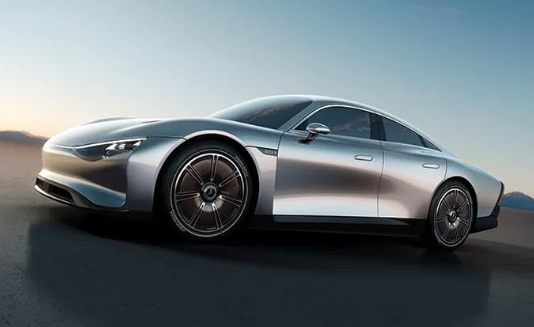
In recent years, the rise of electric vehicles (EVs) has captured the attention of the automotive industry and consumers alike. With growing concerns about climate change and the need for sustainable transportation, governments and automakers worldwide have pledged to accelerate the transition to electric cars.
At the recent United Nations Climate Change Conference (COP26), a historic agreement was made, with numerous countries committing to an ambitious goal of going all-electric by 2040. This significant milestone has sparked discussions about the future of electric cars and the timeline for their mass adoption. In this article, we will delve into the progress made thus far, the challenges ahead, and the potential path to an electric-powered future.
The Global Push Towards Electric Mobility
The declaration signed at COP26 showcases a remarkable consensus among nations to embrace electric vehicles. A wide range of countries, including Austria, Canada, Denmark, Finland, the Netherlands, and the United Kingdom, have committed to the goal of achieving a fully electric fleet within the next two decades. The list also includes countries from various continents, highlighting the global nature of the movement. By uniting under this pledge, these nations aim to tackle climate change, reduce air pollution, and establish a sustainable transportation system.
Driving Forces Behind Electric Vehicle Adoption
Several factors have fueled the rise of electric cars, paving the way for a future where they become the dominant mode of transportation:
Technological Advancements
Over the years, significant progress has been made in battery technology, resulting in improved energy storage, longer driving ranges, and reduced charging times. These advancements have addressed one of the primary concerns associated with EVs (range anxiety), making them a more viable alternative to conventional internal combustion engine (ICE) vehicles.
Environmental Imperative
The need to combat climate change has been a crucial driver in the shift toward electric mobility. As transportation is a major contributor to greenhouse gas emissions, transitioning to electric vehicles plays a vital role in reducing carbon footprints and achieving sustainability targets.
Policy Support and Incentives
Governments worldwide have implemented various policies and incentives to promote the adoption of electric cars. These include financial incentives, tax benefits, and the establishment of charging infrastructure networks. Such initiatives have made electric vehicles more accessible and attractive to consumers, accelerating their market penetration.
Automaker Commitment
Alongside governmental support, automakers have recognized the growing demand for electric cars and have been investing heavily in research, development, and production. Leading manufacturers, including Mercedes-Benz, have committed to ambitious electrification goals, signaling a significant shift in the industry.
Challenges and Hurdles to Overcome
Despite the progress made, there are several challenges that need to be addressed for electric cars to take over completely:
Continued Infrastructure Development
The availability of an extensive charging infrastructure is crucial for the widespread adoption of electric vehicles. Governments and private stakeholders must collaborate to invest in the continued development of a vast network of fast-charging stations and ensure their accessibility across urban and rural areas.
Cost and Affordability
Electric vehicles still come with a higher price tag compared to their gasoline counterparts. Lowering the cost of batteries and increasing economies of scale through mass production will be instrumental in making EVs more affordable for the general population.
Range Anxiety
Range anxiety, the fear of running out of battery charge before reaching a destination, remains a concern for potential EV buyers. Continued advancements in battery technology to increase driving ranges, coupled with improved charging infrastructure, can alleviate this concern and boost consumer confidence.
Transition of Existing Infrastructure
The shift to electric cars requires not only changes in individual vehicle ownership but also an overhaul of existing transportation infrastructure. Fleet electrification for public transportation, commercial vehicles, and logistics will be vital for achieving a comprehensive transition to electric mobility.
The Road to an Electric Future
The global commitment to transitioning to electric cars by 2040 signifies a remarkable step forward in addressing the challenges of climate change and creating a sustainable future. With nations like the United Kingdom and the Netherlands announcing plans to ban the sale of new gasoline and diesel vehicles even earlier, by 2030, it is evident that electric vehicles are gaining momentum.
However, realizing a fully electric fleet will require a coordinated effort, innovative solutions, and continued support from governments, automakers, and consumers. As technology improves, costs decrease, and infrastructure expands, electric cars are poised to take over the roads, revolutionizing transportation as we know it and ushering in a new era of clean and efficient mobility.


